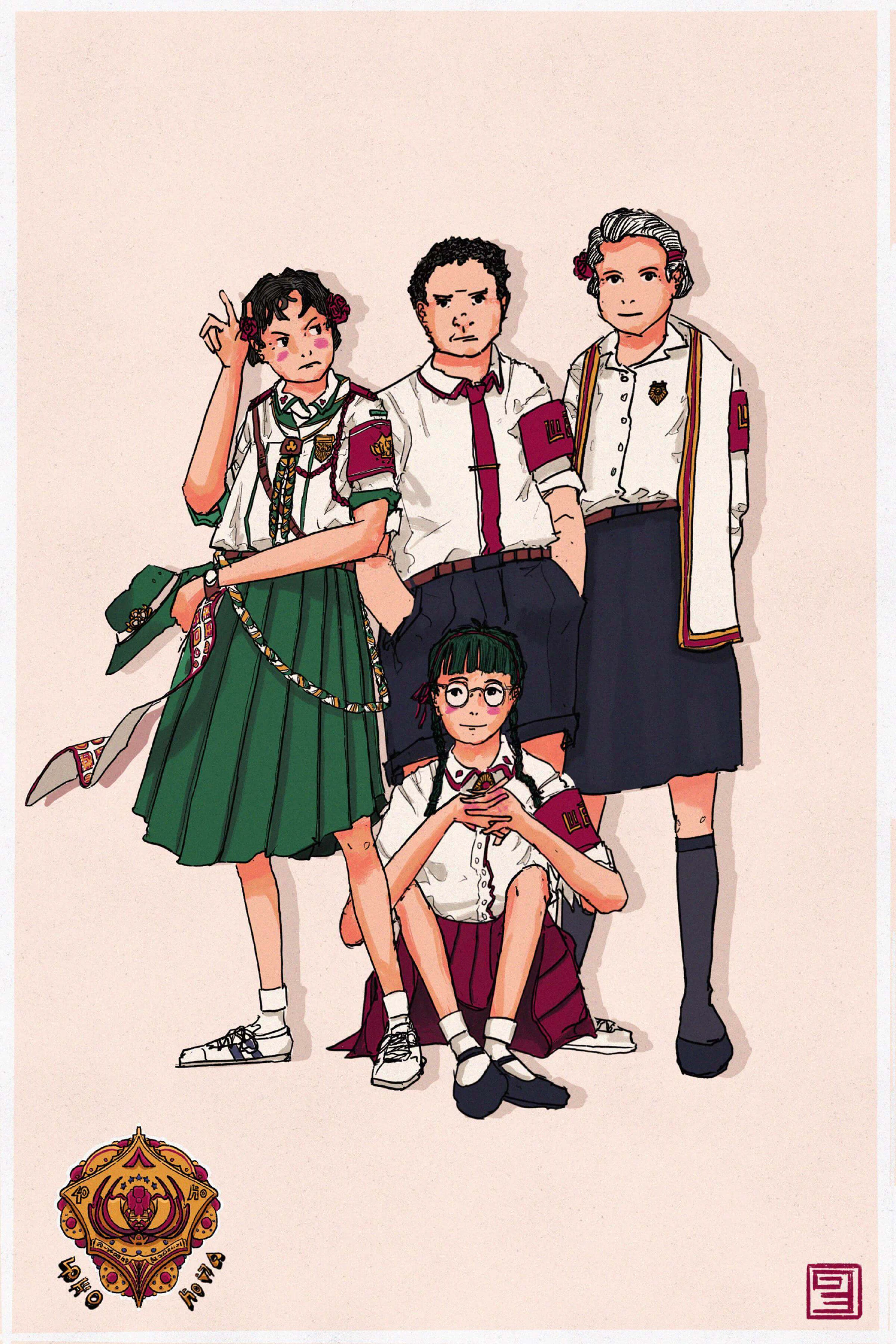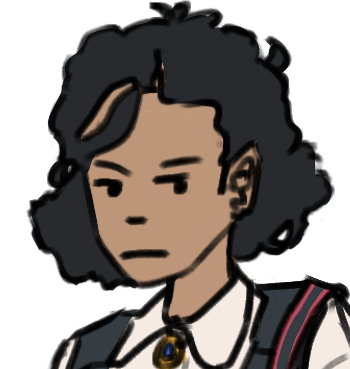NEW Story: Sunday Morning
Uniforms in Vekllei

This article is not part of Vekllei canon. It may be old, obsolete or just a bit of fun.
✿ This article was featured in Issue #5 of the Atlantic Bulletin
In Vekllei, uniforms are prevalent across all levels of society. They are perhaps the most obvious example of the opaque contradictions at the heart of Vekllei life, caught between wholly opposing ideas: between tradition and progress; liberty and control; and, most crucially here — between individualism and the burden of society.
Depicted here are uniforms for education — Tzipora as a puffling of the Puffin Scouts on the left, and the others in mere school uniforms. These uniforms are universal and used across all ages of schooling, from kindergarten to university. Even some teachers wear them — it starts to stretch the conventional imagination about what constitutes a uniform.
A few observations on this picture:
First, these uniforms are used interchangeably across ages and disciplines. The difference between a red pleat skirt and a navy skirt is trivial; it is merely a difference in the meaning of the clothing, as part of Vekllei semaphore. They are both equally the school-mandated uniform of education, and can be worn interchangeably from one day to the next, in third grade and at university.
Second, there are many small uniquenesses in the uniform of each person, which are accentuated by their surrounding uniformity. Tzipora’s school shirt is pleated along the buttons, acquired off the rack of a department store. One pair of trousers might be a slightly different shade to the pair next to it. These discrepancies are not regarded as malfunctions of the uniform system, since the system is not designed to make each student conform to a single appearance — it is about identity and convenience in a country that spent many decades clawing its way out of abject poverty.
These principles apply across many workplaces and in government, too — where uniforms are not intended to only signify publicly a place of work but instead form social bonds through clothing, which are intimate factors of ordinary life. In Vekllei, clothes are not an expression of personality, but items to communicate and bond with, regulated not by an authority demanding strict conformity but a desire for identity, physicality, infrastructure and convenience.
Such a state of affairs is unimaginable in some countries, especially beyond collectivist or conformist cultures. Individualist intuition suggests that uniforms are actively detrimental to personal expression — but this idea demands a scale of expression far beyond the preference for subtlety and delicateness in Upen. Deviations from uniformity, like earrings, the way hair is worn, wristwatches, makeup and minor irregularities accentuate the value of those things, and make them more important. This aesthetic contrast is at the heart of the wider Upen intuition that you can see in architecture and political priority alike. And, as any Vekllei boy will tell you — seeing a classroom crush out of uniform for the first time is a religious experience, and only afforded by scarcity.
Vekllei is an individualist society, modelled after self-concern and self-love by a salt-of-the-earth and larrikin people of my native Australia. This is not a people compatible with conventional thinking on the regulation of appearance — but, as with many things in Vekllei, both are held true at the same time. They are a free and unrestrained population clothed at work and in school in clothes gifted to them. As an addendum, although many readers find common ancestry with Japan in this project (not unreasonably, either), Vekllei has more in common in some ways with the distant neighbours of my Australian homeland — countries that haven’t been glamorised in the West through culture export. Thailand, Cambodia and Laos are among them — coincidentally, all three are rare examples of countries where university students wear uniforms.
Someday, we’ll look at the aesthetics of power and authority-worship, inspired at least in part by the history and culture of these countries, and associate them with cultural forces in Vekllei. If you have any questions, just ask.


